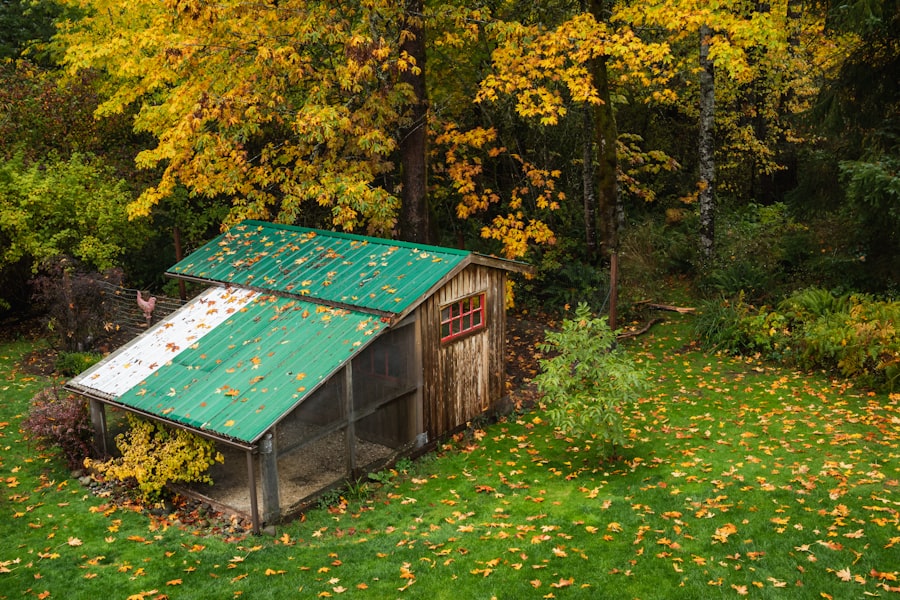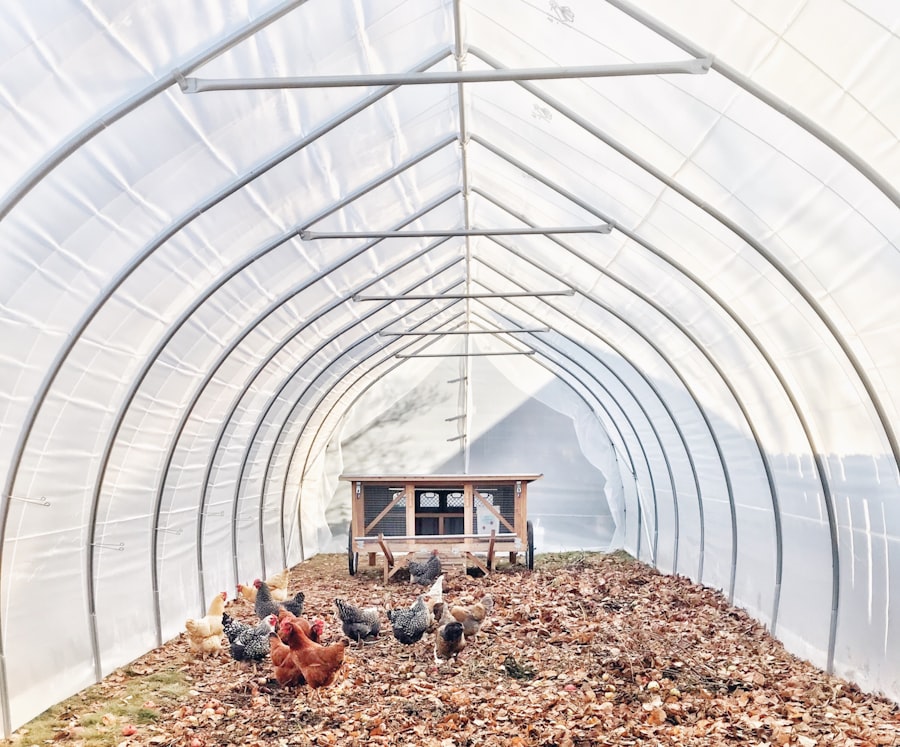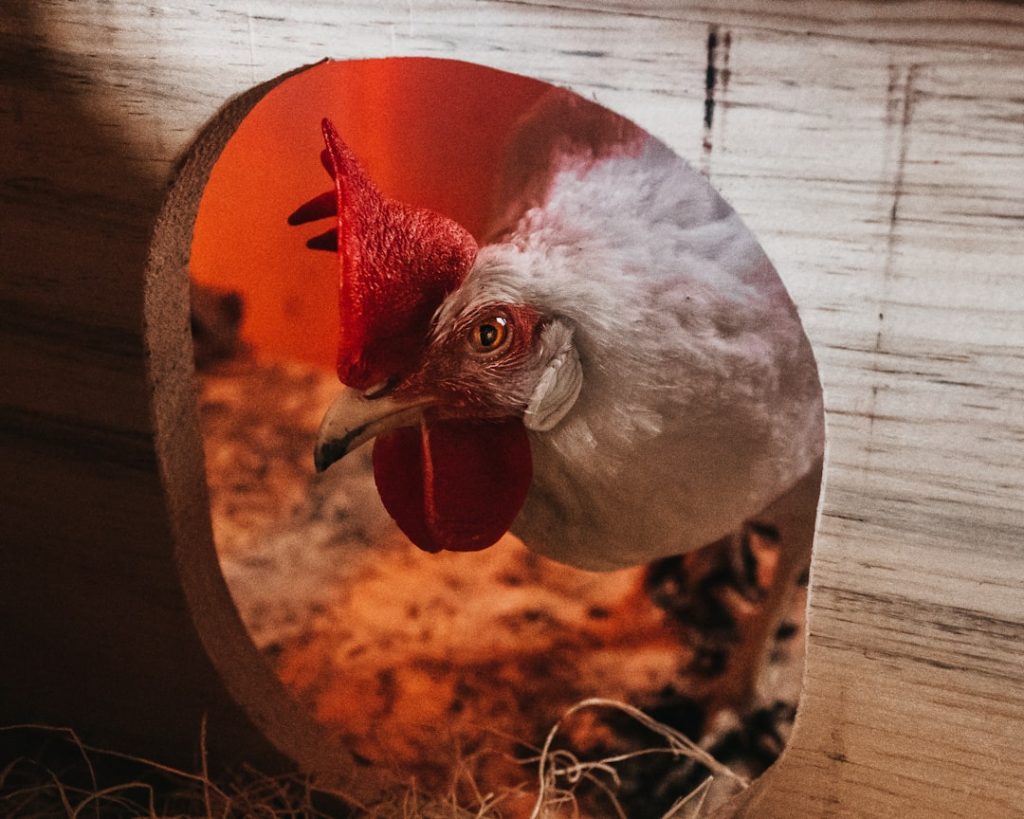Livestock face various threats that can impact their health and survival. These threats include predators, extreme weather conditions, and diseases. Predatory animals such as coyotes, wolves, and mountain lions pose significant risks to livestock, particularly in rural areas.
To mitigate these risks, livestock owners often implement protective measures like installing fencing and employing guard animals such as dogs or llamas. Extreme weather events, including heatwaves, blizzards, and hurricanes, can also endanger livestock. Owners must develop contingency plans to safeguard their animals during such conditions.
This may involve providing shelter during extreme heat or ensuring access to food and water during severe winter storms. Diseases represent another major threat to livestock health. Infections can spread rapidly among animal populations, potentially leading to widespread illness and mortality.
To combat this risk, livestock owners should maintain vigilant health monitoring practices and implement preventative measures such as vaccination programs and quarantine protocols. These strategies help minimize the likelihood and impact of disease outbreaks among livestock.
Table of Contents
- 1 Proper Feeding and Nutrition
- 2 Providing Shelter and Protection
- 3 Preventing Illness and Disease
- 4 Managing Stress and Behavior
- 5 Monitoring and Responding to Environmental Changes
- 6 Ensuring Proper Handling and Care
- 7 FAQs
- 7.1 What are some common threats to chickens in Sea of Thieves?
- 7.2 How can I protect my chickens from other players in Sea of Thieves?
- 7.3 What can I do to keep my chickens safe from skeletons in Sea of Thieves?
- 7.4 How can I protect my chickens from the elements in Sea of Thieves?
- 7.5 What should I do if my chickens are injured in Sea of Thieves?
Key Takeaways
- Understanding the threats: Be aware of potential predators and environmental hazards that can pose a threat to your animals.
- Proper feeding and nutrition: Ensure that your animals are receiving a balanced diet and proper nutrition to support their health and well-being.
- Providing shelter and protection: Create a safe and comfortable environment for your animals, protecting them from extreme weather conditions and potential dangers.
- Preventing illness and disease: Implement regular health checks and vaccinations to prevent the spread of illness and disease among your animals.
- Managing stress and behavior: Recognize signs of stress and behavioral issues in your animals and take steps to address and manage them effectively.
- Monitoring and responding to environmental changes: Stay vigilant and responsive to changes in the environment that may impact the well-being of your animals.
- Ensuring proper handling and care: Handle your animals with care and provide them with the attention and care they need to thrive.
Proper Feeding and Nutrition
Developing a Feeding Program
It’s important for livestock owners to work with a veterinarian or animal nutritionist to develop a feeding program that meets the specific needs of their animals. In addition to providing a balanced diet, it’s important for livestock owners to ensure that their animals have access to clean and fresh water at all times. Water is essential for digestion, temperature regulation, and overall health.
Providing Adequate Nutrition
Livestock should also have access to adequate forage or pasture, as well as supplemental feed if necessary. A well-planned feeding program should take into account the specific nutritional needs of the animals, including the provision of essential vitamins and minerals.
Benefits of Proper Feeding and Nutrition
Proper feeding and nutrition not only support the health of the animals but also contribute to their productivity and performance. By providing a balanced diet and ensuring access to clean water and adequate nutrition, livestock owners can help to optimize the health and well-being of their animals, leading to improved productivity and profitability.
Providing Shelter and Protection

Livestock require shelter and protection from the elements in order to thrive. Shelter can provide protection from extreme weather conditions such as heat, cold, wind, and precipitation. It can also offer a safe and comfortable environment for resting and sleeping.
The specific type of shelter needed will depend on the species of livestock and the local climate. For example, cattle may require a sturdy barn or loafing shed, while sheep may benefit from a three-sided shelter. In addition to shelter, livestock also require protection from predators and other potential threats.
Fencing can be an effective way to keep predators out and livestock in, reducing the risk of predation and injury. Livestock owners may also consider using guard animals such as dogs or llamas to help protect their animals from predators. Providing adequate shelter and protection is essential for ensuring the safety and well-being of livestock.
Preventing Illness and Disease
Preventing illness and disease is a critical aspect of livestock management. Disease outbreaks can have devastating effects on livestock populations, leading to illness, death, and economic losses for livestock owners. There are several key strategies that livestock owners can implement to prevent illness and disease in their animals.
These include vaccination programs, biosecurity measures, and regular health monitoring. Vaccinations are an important tool for preventing the spread of infectious diseases among livestock. Livestock owners should work with a veterinarian to develop a vaccination program that is tailored to the specific needs of their animals and the local disease risks.
Biosecurity measures, such as quarantining new animals and limiting visitor access to the farm, can help prevent the introduction and spread of diseases. Regular health monitoring, including observation of behavior and symptoms, can help identify potential health issues early on, allowing for prompt intervention.
Managing Stress and Behavior
Livestock can experience stress in response to various factors, including changes in their environment, handling practices, and social dynamics within the herd. Chronic stress can have negative effects on the health and well-being of livestock, leading to decreased productivity and increased susceptibility to illness. It’s important for livestock owners to implement management practices that minimize stress and promote positive behavior in their animals.
One key aspect of managing stress and behavior in livestock is providing a low-stress handling environment. This includes using proper handling techniques, such as quiet movements and gentle pressure, to reduce fear and anxiety in the animals. Livestock owners should also consider the social dynamics within their herds, as aggressive or dominant behavior among animals can lead to stress and injury.
Providing adequate space, enrichment, and socialization opportunities can help promote positive behavior and reduce stress in livestock.
Monitoring and Responding to Environmental Changes

Temperature Regulation
During periods of extreme heat or cold, livestock may require additional shelter or ventilation to maintain a comfortable body temperature. This can help prevent heat stress or hypothermia, ensuring the overall health and well-being of the animals.
Air Quality Management
In addition to temperature-related changes, livestock owners should also be mindful of air quality within their facilities. Poor ventilation can lead to increased levels of ammonia and other harmful gases, which can negatively impact the respiratory health of livestock. Monitoring air quality and implementing proper ventilation systems can help maintain a healthy environment for the animals.
Emergency Preparedness
Livestock owners should also be prepared to respond to natural disasters or other emergencies that may impact their animals, such as flooding or wildfires. Having a contingency plan in place can help minimize the risk of injury or loss to the animals, as well as reduce the economic impact on the farm or ranch.
Ensuring Proper Handling and Care
Proper handling and care are essential for the health and well-being of livestock. This includes providing routine care such as grooming, hoof trimming, and parasite control. Livestock owners should also be mindful of proper handling techniques when moving or transporting their animals, as rough handling can lead to stress and injury.
In addition to routine care and handling, it’s important for livestock owners to be prepared to provide emergency care when needed. This may include administering first aid for injuries or illnesses, as well as knowing when to seek veterinary care. Livestock owners should also have a plan in place for managing emergencies such as fires or natural disasters that may impact their animals.
By ensuring proper handling and care at all times, livestock owners can help promote the health and well-being of their animals.
If you’re interested in learning more about caring for poultry, Poultry Wizard has a helpful article on how to care for goslings. This resource can provide valuable information on raising and nurturing young birds, which can be useful for those looking to keep chickens alive in Sea of Thieves. Additionally, Poultry Wizard offers a wide range of resources and articles on poultry care, making it a valuable resource for anyone interested in raising birds.
FAQs
What are some common threats to chickens in Sea of Thieves?
Some common threats to chickens in Sea of Thieves include attacks from other players, attacks from skeletons, and exposure to the elements such as storms and rough seas.
How can I protect my chickens from other players in Sea of Thieves?
To protect your chickens from other players in Sea of Thieves, consider keeping a lookout for other ships and hiding your chickens below deck or in a secure location on your ship. It’s also a good idea to be cautious when approaching other players and to be prepared to defend your chickens if necessary.
What can I do to keep my chickens safe from skeletons in Sea of Thieves?
To keep your chickens safe from skeletons in Sea of Thieves, be mindful of where you park your ship and where you choose to explore. Avoid areas with a high concentration of skeletons, and be prepared to defend your chickens if you do encounter them.
How can I protect my chickens from the elements in Sea of Thieves?
To protect your chickens from the elements in Sea of Thieves, try to keep them below deck during storms and rough seas. Additionally, be mindful of the temperature and weather conditions on the islands you visit, and take precautions to keep your chickens safe and comfortable.
What should I do if my chickens are injured in Sea of Thieves?
If your chickens are injured in Sea of Thieves, you can use bananas to heal them. Simply feed the injured chicken a banana to restore its health. It’s also a good idea to keep a supply of bananas on hand to care for your chickens in case of injury.
Meet Walter, the feathered-friend fanatic of Florida! Nestled in the sunshine state, Walter struts through life with his feathered companions, clucking his way to happiness. With a coop that’s fancier than a five-star hotel, he’s the Don Juan of the chicken world. When he’s not teaching his hens to do the cha-cha, you’ll find him in a heated debate with his prized rooster, Sir Clucks-a-Lot. Walter’s poultry passion is no yolk; he’s the sunny-side-up guy you never knew you needed in your flock of friends!







